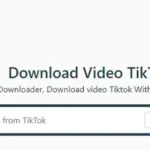When “lizdoxsquad” yields no verifiable results, the most plausible related entity is Lizard Squad, a hacker collective infamous in the mid-2010s for a string of cyberattacks.
Lizard Squad is a black hat hacking group (or collective) that gained notoriety for conducting Distributed Denial of Service (DDoS) attacks and intrusions into high-profile platforms.
Some of their better-known actions include:
- Targeting PlayStation Network and Xbox Live services
- Taking responsibility for outages on Sony’s systems
- Claiming responsibility for downing or disrupting servers for games like League of Legends
- Engaging in high-visibility taunts and publicity stunts on social media
Because “lizdoxsquad” is not documented independently, many references to it may be user typos or alternate spellings of Lizard Squad.
Major Attacks & Public Incidents
To understand what “lizdoxsquad” might mistakenly refer to, here are the hallmark operations of Lizard Squad:
1. Gaming platform DDoS disruptions
One of their earliest actions was targeting Xbox Live and PlayStation Network, causing service disruptions and outrage among gamers.
2. High-profile claims & social media taunts
Lizard Squad often claimed credit on Twitter or other social media sites, frequently in a provocative or mocking tone. For example, they claimed to have compromised various celebrity accounts
One notorious stunt involved tweeting that there was a bomb on a plane carrying Sony Online Entertainment executive John Smedley, resulting in an emergency landing—an act that drew law enforcement attention.
3. Attacks on game servers & minor targets
They also targeted game server infrastructure, individual YouTube accounts, and smaller networked services. Wikitubia lists that they compromised or attempted to compromise many YouTuber accounts.
Over time, their visibility declined after arrests and increased legal pressure.
Organizational Structure & Known Members
Because hacker groups often operate with anonymity, the internal structure of Lizard Squad is murky. But some details have emerged:
- The group was allegedly formed around 2014, with core members including aliases like M2 and Zeekill.
- They sometimes organized in smaller subgroups (e.g. Poodle Corp) to carry out specialized attacks.
- After law enforcement actions, some handoffs, fragmentation, or dormancy seem to have occurred, reducing their public footprint.
Because “lizdoxsquad” is not documented, if it corresponds to a splinter group or alias, no reliable public attribution is available.
Why “Lizdoxsquad” Might Appear: Typos, Copycats, or Misnomers
Given the absence of clear references for “lizdoxsquad,” several scenarios are plausible:
- Typographical error / misspelling
Many users may mis-type “Lizard Squad” as “Lizdoxsquad” due to keyboard proximity, autocorrect, or confusion. - Alias or offshoot / copycat
Someone might adopt “lizdoxsquad” as a variant alias to evade detection or misunderstanding. But no credible evidence supports this in known hacking news or security records. - Blend with “dox” terminology
The presence of “dox” (as in doxx or doxing) in the name suggests a possible intention to mix the concept of revealing personal information with the Lizard Squad identity. However, no documented campaigns or statements with that name appear in security reporting.
Because of these possibilities, when encountering “lizdoxsquad” references online, one should treat them with skepticism and look for more reliable attribution (screenshots, domain records, hacker forums).
Impact, Risks & Consequences of Hacker Groups Like Lizard Squad
Whether the name is Lizard Squad, “lizdoxsquad,” or a related variant, the core threats and risks remain similar. Understanding them helps contextualize why these groups are taken seriously.
1. Service outages and financial damage
DDoS attacks can bring down gaming platforms, eCommerce sites, or online services, resulting in loss of revenue, customer trust, and operational cost for mitigation.
2. Data breaches and exposure
Groups sometimes combine DDoS with intrusions—hacking accounts, leaking user data, or defacing content. The act of doxing (revealing personal information) can lead to harassment, identity theft, or worse.
3. Psychological and reputational harm
For individuals targeted (YouTubers, influencers), these attacks may cause fear, mental stress, or reputational damage—especially when personal data is exposed.
4. Legal consequences and enforcement pressure
Law enforcement agencies treat such attacks seriously. Arrests, indictments, and cybersecurity crackdowns follow when hacker groups cross legal lines (especially when threats, violence, or doxxing minors are involved).
5. Community disruption and trust erosion
Within gaming, streaming, or content creator communities, the presence of hacking groups erodes trust. Users may hesitate to share or participate, platforms might increase restrictions, and smaller creators suffer disproportionately.
How to Respond & Verify Claims When You Encounter a Name Like “Lizdoxsquad”
If you see references to “lizdoxsquad,” whether in forums, social media, or hacking claim posts, here are steps to critically assess validity and protect yourself:
1. Look for credible sources
- Check cybersecurity news websites (e.g. KrebsOnSecurity, The Hacker News) for mentions
- Search domain registration (WHOIS), archived pages, or historical snapshots
- See if law enforcement or security firms mention the alias
2. Cross-check with known groups
Often such names are misattributed or rebranding of known entities (like Lizard Squad). Compare claimed attacks or TTPs (tactics, techniques, procedures) to known groups.
3. Evaluate motive and plausibility
Does the group claim doxing, hacking, or public disruptions? Are their claims in line with known capabilities? Groups making vague, unverified threats are often trolls.
4. Be cautious with sharing / amplifying
Avoid retweeting or reposting threatening claims, especially with personal data. Amplification can encourage the attackers or spread panic.
5. Protect your account security
- Use strong passwords and 2FA
- Monitor your accounts for suspicious access
- Be cautious about links, file downloads, email phishing
6. Report to platform / authority when warranted
If threats or personal exposure occur, report to relevant platforms (e.g. YouTube, Twitter) or local law enforcement.
Conclusion: Lizdoxsquad or Lizard Squad — What You Need to Know
Because no solid evidence exists for “lizdoxsquad,” it’s most likely a misspelling, alias, or unofficial variant of Lizard Squad, a well-documented hacker entity known for DDoS attacks and online disruptions.
Understanding Lizard Squad’s history—its attacks, tactics, public stunts, and subsequent decline—offers insight into how hacker groups operate, evolve, and fragment. When encountering ambiguous names like “lizdoxsquad,” apply critical verification, protect your digital presence, and rely on credible sources.








